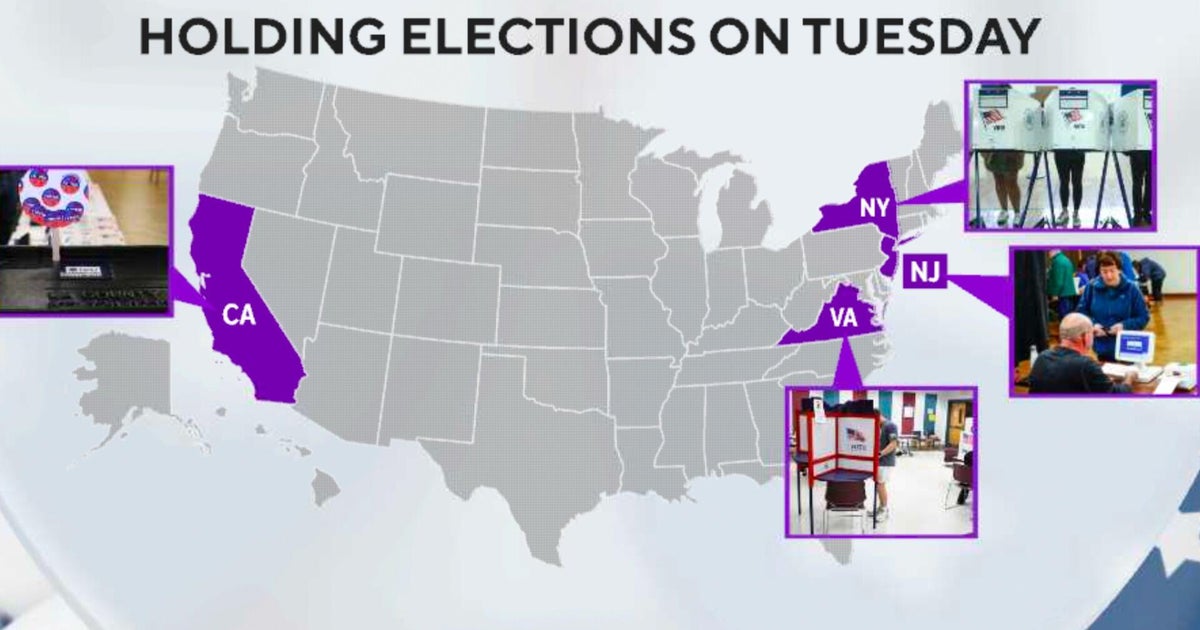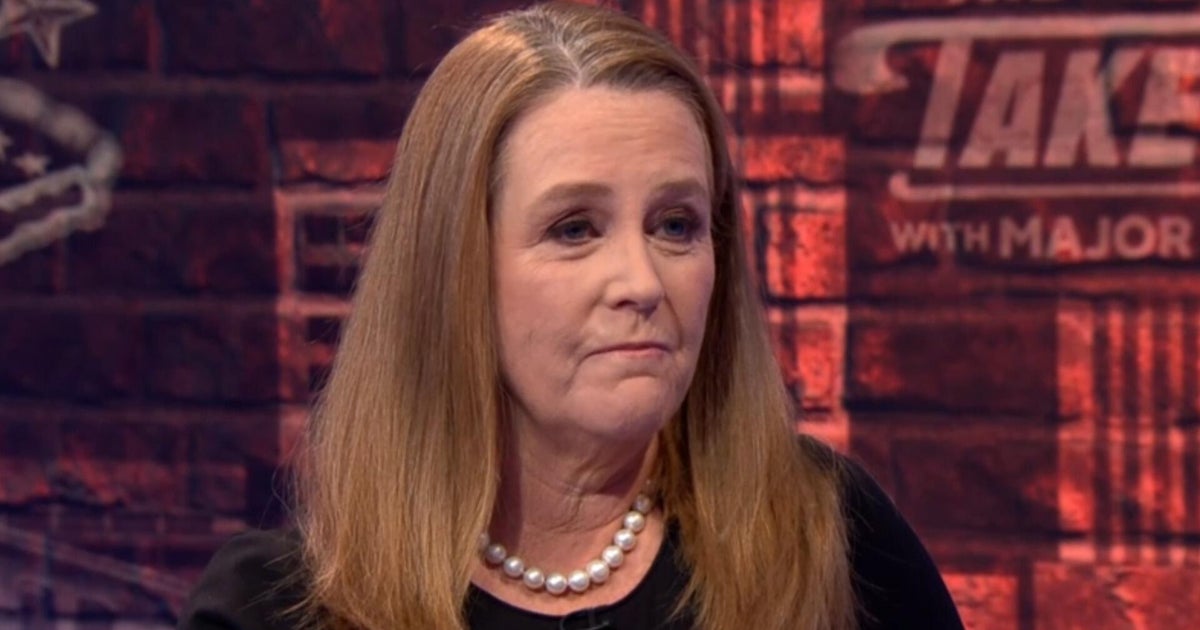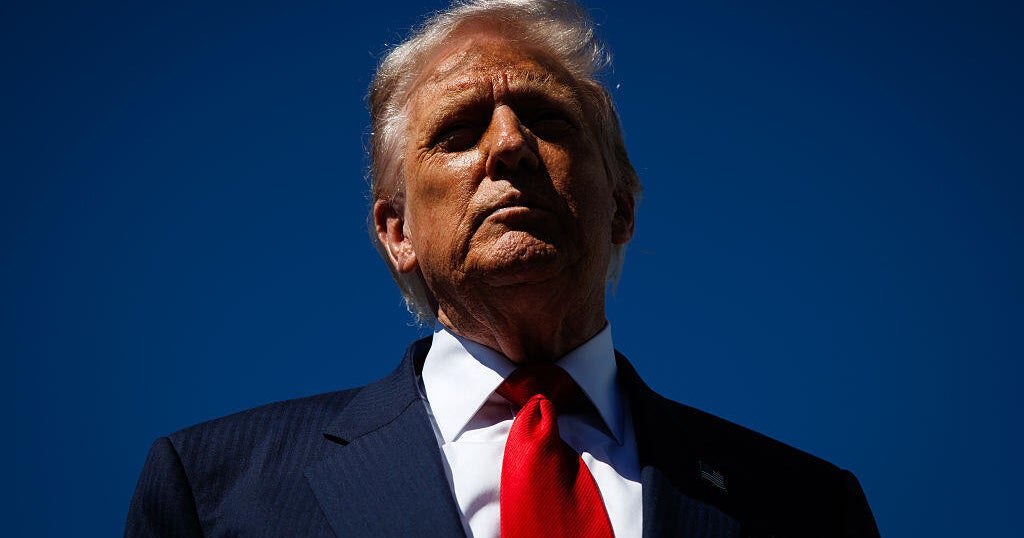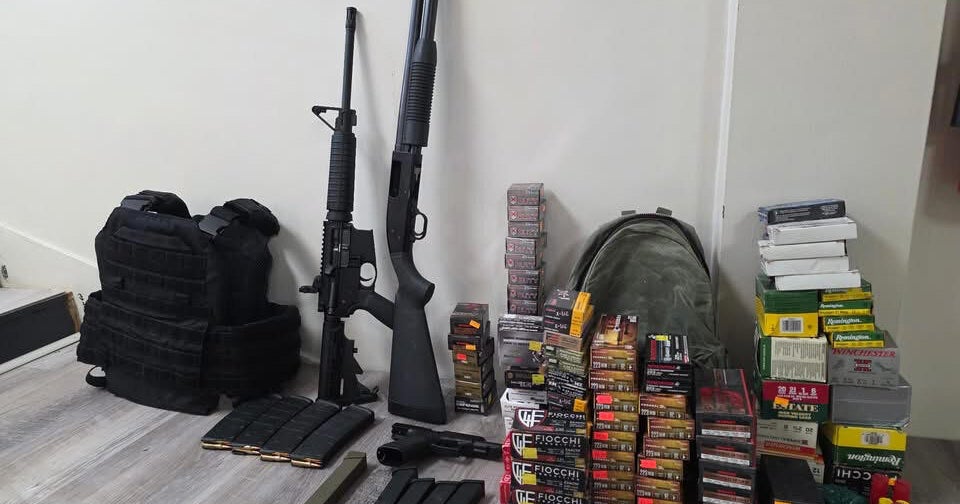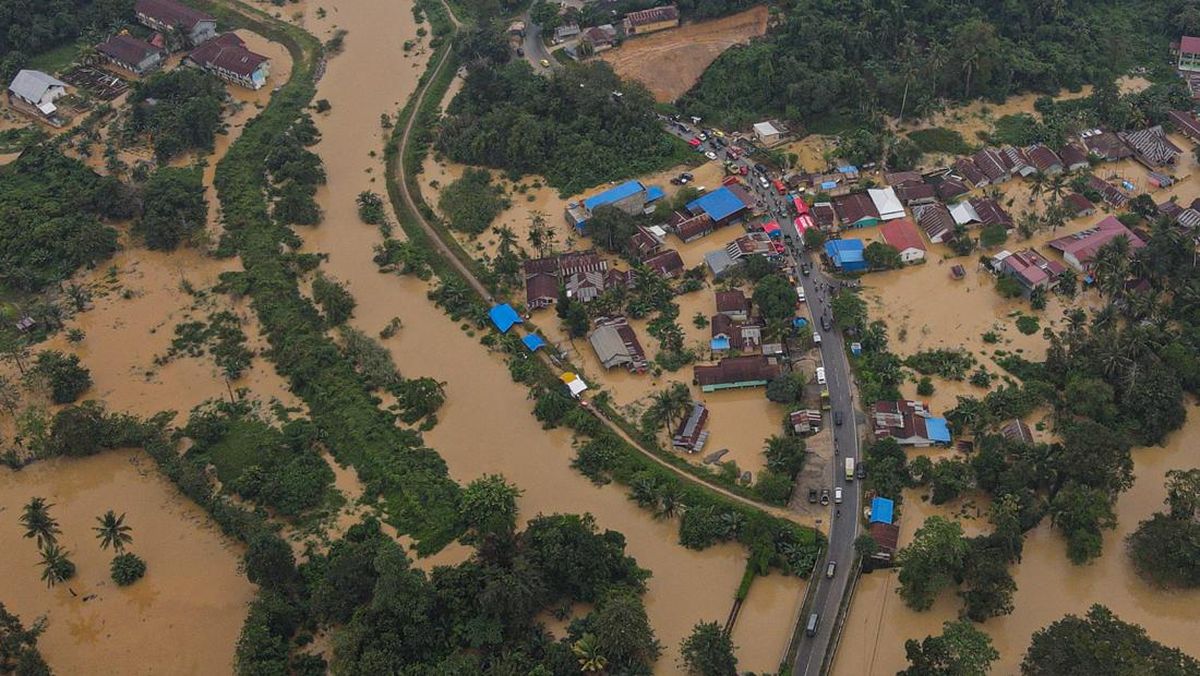NATO and some of America's allies in the transatlantic alliance have sought to ease concerns over the Trump administration's move to reduce the U.S. military's presence in Europe amid Russia's ongoing assault on Ukraine and as it's accused of ramping up hybrid warfare against NATO nations.
The Pentagon announced Thursday that it was reducing the number of U.S. troops deployed in eastern Europe. U.S. officials told CBS News that around 700 U.S. airborne troops who have been deployed in Germany, Romania and Poland would come home and not be replaced.
In a statement, the U.S. Army Europe and Africa said it was part of Secretary of Defense Pete Hegseth's "deliberate process to ensure a balanced U.S. military force posture," and "not an American withdrawal from Europe or a signal of lessened commitment to NATO and Article 5. Rather this is a positive sign of increased European capability and responsibility."
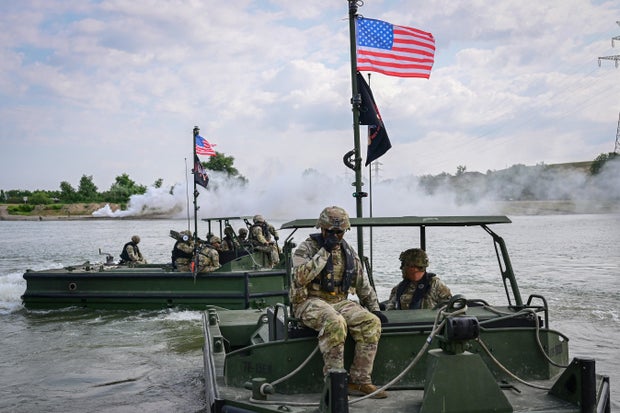 U.S. soldiers operate pusher vessels and a transportation barge on the Danube river, during Saber Guardian 25 military exercises in Frecatei, eastern Romania, June 13, 2025.
DANIEL MIHAILESCU/AFP/Getty
U.S. soldiers operate pusher vessels and a transportation barge on the Danube river, during Saber Guardian 25 military exercises in Frecatei, eastern Romania, June 13, 2025.
DANIEL MIHAILESCU/AFP/Getty
"Our NATO allies are meeting President Trump's call to take primary responsibility for the conventional defense of Europe," the Army said. "This force posture adjustment will not change the security environment in Europe."
NATO and allies stress "U.S.'s continued commitment" to Europe
On Thursday, appearing keen to ease such concerns, Estonian Minister of Defense Hanno Pevkur said in a statement that the U.S. had "made a significant decision to maintain its military presence in Estonia, reaffirming the U.S.'s continued commitment to the defense of the region and NATO's entire eastern flank."
"We are working to further strengthen the U.S. military presence in our region," he added.
In September, Estonia said Russian military jets had violated the country's airspace for 12 minutes, just days after Poland said more than 20 Russian drones entered its airspace. This week, Lithuania closed its border with Russia's close ally Belarus, after accusing both countries of a "deliberate escalation of hybrid warfare."
NATO says deterrence measures along its eastern flank have been "massively reinforced" over the last decade "as a direct result of Russia's behavior." That boundary runs from the Arctic Sea in the north to the Black Sea in the south.
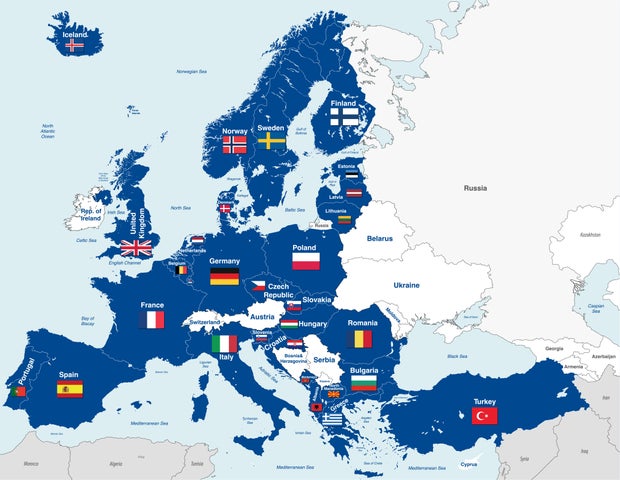 A map shows in dark blue the European nations which, along with the United States and Canada, are members of the transatlantic NATO defense alliance.
brichuas/Getty
A map shows in dark blue the European nations which, along with the United States and Canada, are members of the transatlantic NATO defense alliance.
brichuas/Getty
The reinforcements include U.S. troops, but the Trump administration has pushed its European NATO allies hard to take more responsibility — and bear more of the financial burden — for their own security, announcing earlier this year that it would make the Indo-Pacific a primary foreign policy focus, rather than Europe, despite the ongoing war in Ukraine.
"The decision was expected," Romania's Ministry of Defense said in a statement Wednesday, referring to the announcement of the U.S. troop reduction.
U.S. Ambassador to NATO Matthew Whitaker said in a social media post that America's partnership with Romania "remains stronger than ever," and reiterated the Pentagon's message that it was in response to European forces' increased capacities.
The reassurances have not quelled debate about whether the move could be just the beginning of a wider U.S. withdrawal from Europe. The Ukrainian newspaper Kyiv Post reported Friday that further American troop reductions are expected, with troops to be pulled from Bulgaria, Slovakia and Hungary by the end of the year.
There was no immediate public response to the report from the Pentagon or the Trump administration.
NATO has also sought to ease concerns, with a senior military official from the alliance telling CBS News on Thursday that, "even with this adjustment, the U.S. force posture in Europe remains larger than it has been for many years."
"U.S. commitment to NATO is clear," the official said. "President Trump and his administration have reiterated this time and again. NATO has robust defense plans in place and we are working to ensure we maintain the right forces and capabilities in place to deter and defend each other."
Concern in Washington, from both sides of the aisle
The announcement drew bipartisan criticism in Washington, with some senior lawmakers warning it could embolden Russia and undermine the NATO alliance.
In a joint statement issued Thursday by the U.S. House Armed Services Committee, the chairmen of that committee and the corresponding Senate body — both Republicans — said they strongly opposed the change in the U.S. deployment in Romania, which they said "appears uncoordinated and directly at odds with the President's strategy."
Senator Roger Wicker and Representative Mike Rogers, in the statement, also indicated that they believed the Pentagon could make further reductions to the U.S. deployment in Europe.
"We strongly oppose the decision not to maintain the rotational U.S. brigade in Romania and the Pentagon's process for its ongoing force posture review that may result in further drawdowns of U.S. forces from Eastern Europe," said the Republican lawmakers.
"On March 19, we stated that we will not accept significant changes to our warfighting structure that are made without a rigorous interagency process, coordination with combatant commanders and the Joint Staff, and collaboration with Congress," said Wicker and Rogers. "Unfortunately, this appears to be exactly what is being attempted."
On Thursday, Rep. Mike Turner, also a Republican and the head of the U.S. delegation to the NATO Parliamentary Assembly, said he was "concerned by reports of reductions of US forces in Romania."
"Congress has been clear that US force posture across Europe must remain robust and resolute. Russia's aggressive actions against Eastern Flank countries through intentional airspace incursions underscores Russia's ambition beyond Ukraine," said Turner. "It is in our national security interests to support our NATO Allies as they rightly ramp up their investments in their defense capabilities."
Democratic Sen. Jeanne Shaheen, ranking member of the Senate Foreign Relations Committee, called the decision to reduce the U.S. presence in the region "deeply misguided" in a statement released Thursday.
"This decision sends exactly the wrong signal to Vladimir Putin as he continues his murderous campaign in Ukraine and tests NATO resolve through provocations against other frontline states," she said.
Charlie D'Agata, Steve Berriman and Tucker Reals contributed to this report.



